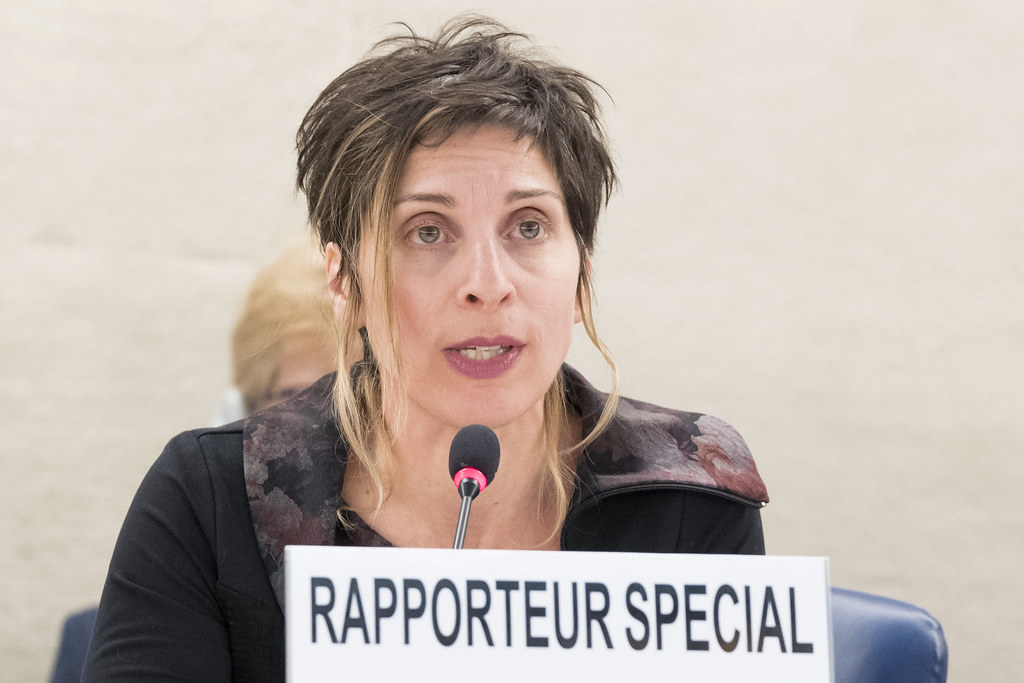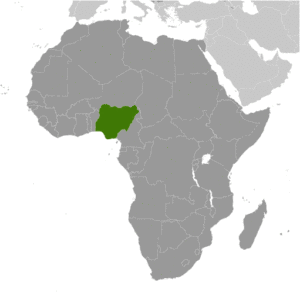UN: Nigeria should end anti-LGBT housing bias
Colin Stewart is a 45-year journalism veteran living in Southern…
Nigeria needs to fix its housing problems, including landlords’ bias against LGBT Nigerians, says the U.N.’s specialist on housing.

Nigeria’s far-reaching anti-gay law should be repealed in order to reduce anti-gay bias, Leilani Farha, the U.N. special rapporteur on housing, stated in a report to the U.N. Human Rights Council.
The country also should enact an anti-discrimination to protect its LGBT citizens and should establish emergency shelters for them and for others who are at risk, Farha stated.
ILGA (the International Lesbian, Gay, Bisexual, Trans and Intersex Association) published these excerpts from Farha’s report to the February-March session of the UNHRC:
Visit to Nigeria – Report of the Special Rapporteur on adequate housing as a component of the right to an adequate standard of living, and on the right to non-discrimination in this context

- Not only is purchasing a home in the private market unaffordable for most Nigerians, there are many other barriers hindering access to rented accommodation: supply is scarce, landlords require tenants to pay one to two years’ rent in advance, discrimination by landlords affects single women, lesbian, gay, bisexual and transgender persons, persons living with HIV/AIDS and others, and no effective rent control or caps have been implemented. Landlord-tenant relations are loosely governed and state-level rent control laws and other legislation protecting the rights of tenants are frequently violated. (…)
B. Lesbian, gay, bisexual and transgender persons 62. Lesbian, gay, bisexual, and transgender persons experience extreme discrimination in Nigeria. The 2013 Same-Sex Marriage (Prohibition) Act imposes a 14-year prison sentence for entering into a same-sex “marriage contract or civil union” and a 10-year prison sentence for those who witness, abet and aid the solemnization of a same-sex marriage or union. It also imposes a 10-year prison sentence on persons who directly or indirectly make public show of same-sex amorous relationships. Twelve states in northern Nigeria apply sharia law and penalize homosexuality with death. Although the Special Rapporteur did not receive evidence of the Act having been implemented, it creates a climate of oppression.
- The Act also violates the right to privacy in the home, as the terms “same-sex marriage” and “civil union” are defined vaguely and could include any form of same-sex cohabitation. While so far there have been no prosecutions under the Act, the law contributes to a social climate that provides justification for discrimination and violence against lesbian, gay, bisexual and transgender persons, including in their own homes.

Human Rights Watch reported that in 2014, in Gishiri village, Abuja, a group of approximately 50 persons armed with machetes, clubs and whips dragged people from their homes and severely beat at least 14 men whom they suspected of being gay. The victims told Human Rights Watch that their attackers chanted: “We are doing [President Goodluck] Jonathan’s work: cleansing the community of gays.” The impact on the right to housing is clear in their testimonies: “The mob was going from house to house looking for gay people, and they had police officers with them. We could not sleep in our house that night; we had to sleep under a bridge.”
- The Special Rapporteur received reports of landlords evicting or refusing to rent to tenants suspected of being lesbian, gay, bisexual or transgender. A deeply disturbing case of a landlord recruiting a group of men to repeatedly rape his tenants, a lesbian couple, in his presence, was also brought to the Special Rapporteur’s attention. The Initiative for Equal Rights, an NGO based in Nigeria, receives four to five complaints each month alleging the eviction of people from their apartments because of their gender identity or sexual orientation.
-
Many lesbian, gay, bisexual and transgender persons in Nigeria are forced into gender conformity and isolation, not only publicly, but also in their own homes, which is incompatible with the enjoyment of the right to housing. The Committee on Economic, Social and Cultural Rights has stated that the right not to be subjected to arbitrary or unlawful interference with one’s home and privacy constitutes an essential dimension of the right to adequate housing. 11
Friends and family members of lesbian, gay, bisexual or transgender persons may find themselves in violation of the Same-Sex Marriage (Prohibition) Act if they associate with their lesbian, gay, bisexual or transgender relative. Lesbian, gay, bisexual and transgender persons are also forced to limit visits to their own domicile by friends who could be suspected of being lesbian, gay, bisexual or transgender for fear that their landlord or neighbours may report them to the police. As a consequence, not even their home offers a safe space for socialization. (…)
VIII. Conclusions and recommendations
- The Government should address homelessness on an urgent and priority basis as a human rights crisis, as part of the country’s housing strategy. As a first step, and at a minimum, the number of available emergency shelters for different populations at risk, such as women and children fleeing violence, lesbian, gay, bisexual and transgender persons and those living with HIV/AIDS, should be increased significantly.
The Government should verify how many persons are homeless and disaggregate relevant data by gender, age, disability and other factors. Homeless persons must be consulted in the process, in order to understand the socioeconomic factors causing homelessness and the best long-term solutions to their situation.
-
The National Assembly and state-level legislatures must adopt comprehensive legislation (including by amending the federal and state tenant legislation) banning discrimination in the housing sector by public and private actors of any group, including women (irrespective of civil status), HIV-positive persons, lesbian, gay, bisexual and transgender persons and persons with disabilities.
-
The Same-Sex Marriage (Prohibition) Act, as well as all other pieces of legislation that discriminate and criminalize on the basis of a person’s sexual orientation and gender identity, must be repealed. The right to privacy of lesbian, gay, bisexual and transgender persons in their own homes is an essential element of the right to housing and must be protected.




